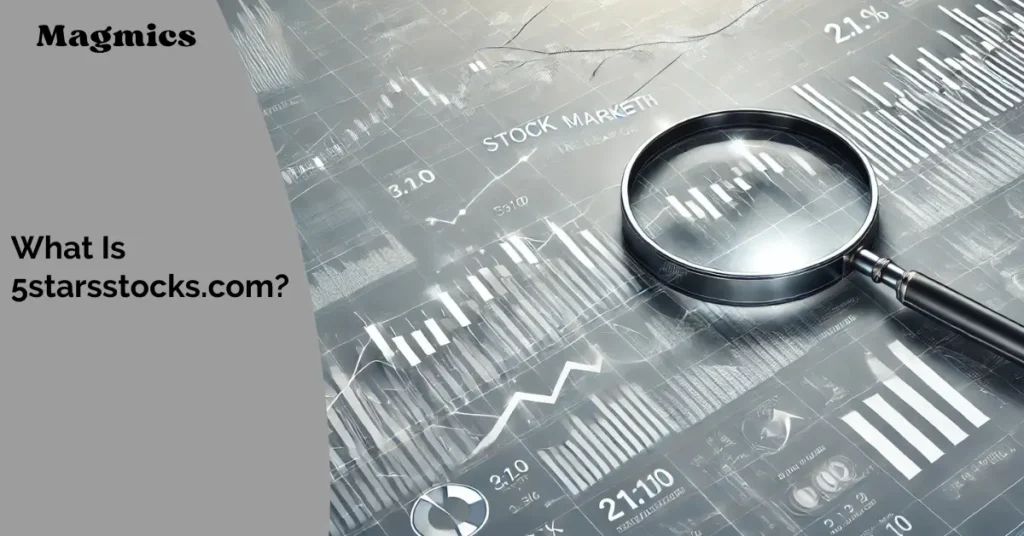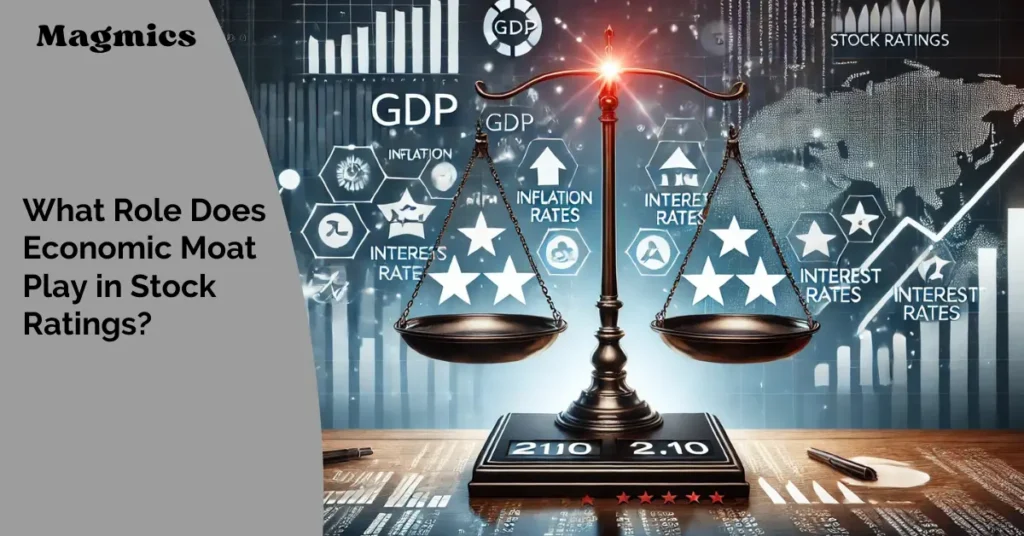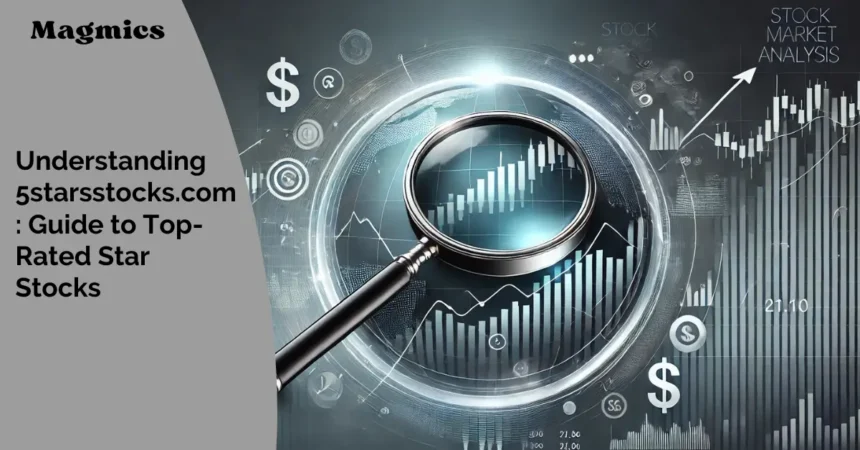5starsstocks.com is a helpful website that focuses on finding stocks rated highly by Morningstar, a trusted investment research company. Think of it as a treasure map pointing you toward stocks that experts think are good deals in the market.
Key Points:
- 5starsstocks.com and similar resources help investors find potential bargains in the market,
- Morningstar ratings streamline the process of finding undervalued, high-potential stocks.
- Fair value plays a pivotal role in determining stock ratings.
- Tools like the Morningstar Screener and Yahoo Finance create a collaborative ecosystem for research.
- Carefully assess before investing in even 5-star rated offerings to mitigate higher uncertainty risks.
What Is 5starsstocks.com?

5starsstockscom is a stock screening concept focusing on finding highly-rated stocks according to Morningstar’s rating system. It’s not about one specific website, but rather the strategy of identifying and investing in stocks that have earned Morningstar’s highest 5-star rating.
Think of it like a shopping guide that helps you find stocks that experts think are “on-sale” in the market. Just like how you might look for five-star reviews before buying something online, investors look for five-star ratings to find stocks that might be good deals.
Features Of 5starsstocks.com
Looking for an easy way to spot potentially good stock investments? Here’s what makes 5-star stocks special and how they can help you make smarter investment choices.
Easy-to-Understand Rating System
Just like movie ratings, stocks get 1-5 stars. More stars mean bigger potential discounts on good companies’ stocks. It’s that simple!
Professional Research Backing
Morningstar’s expert analysts (people who study stocks all day) do the hard work of figuring out what companies are worth. You get their findings in an easy star rating.
Automatic Deal Finding
Like having a smart shopping app that tells you when your favorite items are on sale, and 5-star ratings tell you when good stocks might be available at lower prices.
Risk Assessment Built-In
Each rating considers how risky the stock might be. Higher-risk stocks need bigger discounts to get 5 stars, helping protect your investment.
Regular Updates
Ratings are checked and updated regularly as stock prices change. It’s like having a price tracker that keeps you informed about the best deals.
Quality Focus
Only companies that are financially healthy and well-run can get high star ratings. It helps you avoid buying cheap stocks that might be cheap for a good reason!
How Does The 5-Star Rating Work?
Think of star ratings like grades on a report card but for stocks. Morningstar (a company that studies stocks) gives each stock a grade from 1 to 5 stars, just like how you might rate your favorite restaurant.
When they give a stock 5 stars, it means they think it’s selling for less than it’s worth – like finding a great deal at your favorite store.
If you find the exact same game on sale for $40, that’s a really good deal! This is how Morningstar looks at stocks. When they find a good company’s stock selling for much less than what they think it’s worth, they give it 5 stars.
Read Also: Discover www.MyDearQuotes.Com: Your Daily Inspiration Hub
How Does Morningstar Define 5-Star Stocks?
A 5-star stock represents one that trades significantly below its analysts’ fair value estimate. According to Morningstar, this means the stock is undervalued but has positive financial fundamentals, making it a top choice for confident, long-term investments.
Morningstar analysts evaluate the company’s earnings consistency, capital allocation, and competitive environment to identify 5-star rated stocks. These insights often align with developing industries and global trends.
Why Should Investors Pay Attention to 5Star Stocks.com?
Five-star stocks represent companies that are trading substantially below their estimated fair value, according to Morningstar’s analysis. These stocks often present attractive buying opportunities for investors looking to capitalize on market inefficiencies.
When a stock receives a 5-star rating, it typically means the stock is trading at a significant discount to its fair value estimate. This gap between price and value creates potential opportunities for investors to earn higher returns as the market eventually recognizes the stock’s true worth.
How Does Morningstar Calculate Fair Value Estimates?
Morningstar analysts use a comprehensive approach to determine a firm’s fair value. They consider factors such as:
- The company’s competitive position and economic moat
- Future cash flow projections
- Management effectiveness and capital allocation
- Industry outlook and market conditions
The fair value estimate serves as a benchmark for determining whether a stock’s current price represents a good investment opportunity.
What Role Does Economic Moat Play in Stock Ratings?

A company’s economic moat is crucial in Morningstar’s rating system. This measure indicates a firm’s competitive advantages and its ability to maintain market share against competitors.
Companies with strong moats often have better long-term investment potential and may receive higher ratings if their stock is trading below fair value.
How to Use Morningstar’s Stock Screener Effectively?
The Morningstar screener is a powerful tool that helps investors filter stocks based on various criteria. Users can set filters like star ratings, market capitalization, and economic moat to identify potential investment opportunities that match their strategy.
Premium service users can access additional screening options and detailed analyst reports to further refine their stock selection process.
What Are the Key Differences Between 4- and 5-Star Rated Stocks?
While both 4- and 5-star rated stocks are considered undervalued, 5-star stocks offer a larger margin of safety. T
Here’s a simple comparison table to understand the difference:
| Feature | 5-Star Stocks | 4-Star Stocks |
| Discount to Fair Value | 30% or more below fair value | 20-29% below fair value |
| Risk Level | Higher margin of safety | Good margin of safety |
| Buying Priority | Best time to buy | Worth considering |
| Price Example | $70 stock worth $100 | $80 stock worth $100 |
| Investment Strategy | Strong buy signal | Watch and consider |
How Often Does Morningstar Update Their Stock Ratings?
Morningstar keeps a close eye on stocks and updates their ratings regularly, just like a weather forecaster updates their predictions. They change ratings whenever something important happens – like when a company releases its earnings report (think of it like a company’s report card) or when there’s big news that could affect the stock’s value.
Most stock ratings get checked every day for big price changes, get a deeper review every three months when companies share their financial results, and get a complete detailed review once a year.
How Do Market Conditions Affect Star Ratings?
Stock ratings can fluctuate based on market barometer readings and overall market conditions. During periods of market volatility, more stocks might receive higher ratings as prices fall below fair value estimates.
Think of it like shopping during different seasons: Just like how stores put more items on sale during certain times (like after holidays), market conditions can create situations where more stocks get higher star ratings.
How to Compare Morningstar Ratings with Other Investment Research Tools?
Many investors use Morningstar ratings in conjunction with other research tools like Yahoo Finance and S&P 500 data.
Here’s a simple comparison table of popular investment research tools:
| Feature | Morningstar | Yahoo Finance | S&P 500 |
| Star Ratings | ✓ | Shows Morningstar ratings | No ratings |
| Real-time Price Updates | Premium only | ✓ | ✓ |
| Free Basic Research | Limited | Most features free | Limited |
| Company Analysis | Very detailed | Basic to moderate | Industry focused |
| Easy for Beginners | ✓ | ✓ | More complex |
What Are the Most Common Mistakes When Using Star Ratings?
Think of star ratings like restaurant reviews – they’re helpful, but shouldn’t be your only reason for choosing where to eat. When using stock ratings, many investors make the mistake of trusting the stars too much without looking at the whole picture.
- Trusting Only Stars: Don’t buy just because of 5 stars
- Ignoring Company News: Miss important updates about the company
- Forgetting Your Goals: Not thinking about when you need your money back
- Acting Too Fast: Buying without doing extra homework
- Not Checking Changes: Forgetting that ratings can change quickly
Remember: Stars are like helpful hints, but smart investors look at more than just ratings before buying stocks!
How Have 5StarStocks.com Performed Historically?
Historical data shows that 5-star stocks have often outperformed the broader market over time, though past performance doesn’t guarantee future returns. These stocks tend to show strong recovery potential during market downturns.
Think of it like buying popular items during big sales – historically, people who bought quality products at deep discounts often got great value for their money. Similarly, investors who bought 5-star stocks (especially during market downturns) have often seen their investments grow more than the overall market.
What Role Should Risk Assessment Play in Star-Rated Stock Selection?
Morningstar incorporates uncertainty ratings into their analysis, helping investors understand the relative risk of different investments. Higher uncertainty ratings require larger discounts to fair value to achieve a 5-star rating.
Think of risk assessment like checking the weather before a trip – you want to know if you might run into storms along the way. With stocks, even 5-star ratings come with different levels of risk, just like how a sunny day can still have a chance of rain.
Is There a Correlation Between Market Cap and Star Ratings?
Think of it like shopping – both small boutiques and big department stores can offer great deals. Similarly, Morningstar gives 5-star ratings to companies of any size when their stocks are selling below what they’re worth.
Big companies (like Apple or Walmart) usually have more steady ratings because they’re well-established and predictable – like major retail chains with consistent prices. Smaller companies might see their ratings change more often, just like how a local shop might have more frequent sales and price changes.
Future Of 5starsstocks.com: What’s Coming Next?
As investing keeps evolving with technology and market changes, here’s what we might expect to see in the future of 5-star stock investing.
Smarter Rating Updates
Faster, more accurate ratings using artificial intelligence to spot good deals in the market as they happen – like having a super-smart shopping assistant watching prices 24/7.
More User-Friendly Tools
Easier ways to find and understand 5-star stocks, with simple apps and websites that make investing feel as easy as online shopping.
Personalized Recommendations
Custom stock suggestions based on your goals and risk comfort – like how Netflix suggests shows you might like based on what you’ve watched before.
Real-Time Market Insights
Instant updates when ratings change, helping you make faster, better decisions about when to buy or sell stocks.
Better Risk Warnings
Clearer warnings about potential problems with stocks – like having a friend who tells you about both the good and bad sides of a deal.
Conclusion: 5starsstocks.com
As we head into 2024, finding the right equity investments doesn’t have to be complicated. Whether you’re looking at individual stocks or mutual funds, star ratings can be your helpful guide in the market.
Just remember that these ratings are like a good map – they point you in the right direction, but you still need to choose the path that’s right for you!
FAQs: 5starsstocks.com
What is Morningstar’s 5-star rating for stocks?
The 5-star rating indicates a stock is undervalued relative to financial analysis.
Does a 5-star rating mean guaranteed high returns?
No. While indicative of potential, outcomes vary with market performance.
How does Morningstar determine fair value?
Analysts assess data like earnings, competitive incentives, and discounted metrics.
Which investors benefit most from Morningstar ratings?
Value-centric and long-term investors are prominent beneficiaries.
Are all Morningstar’s tools free?
Morningstar offers both free and Premium tools. Subscribers gain deeper insights.






